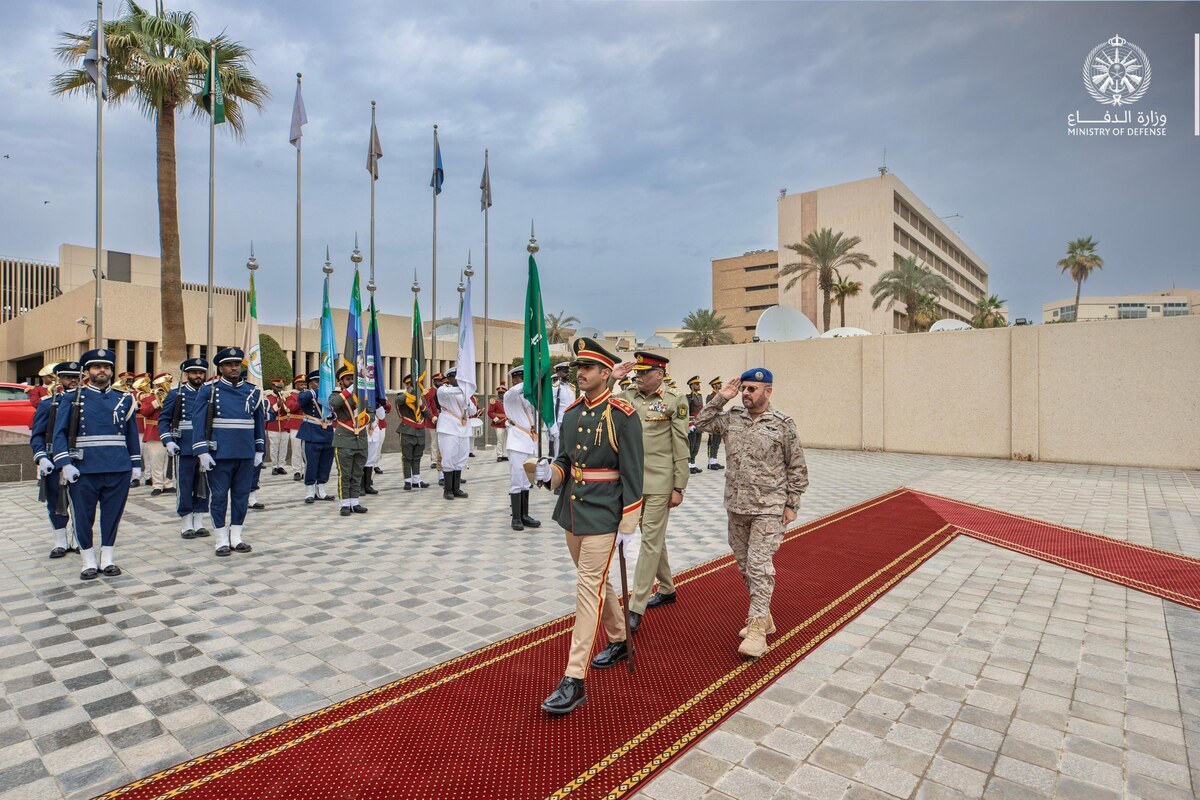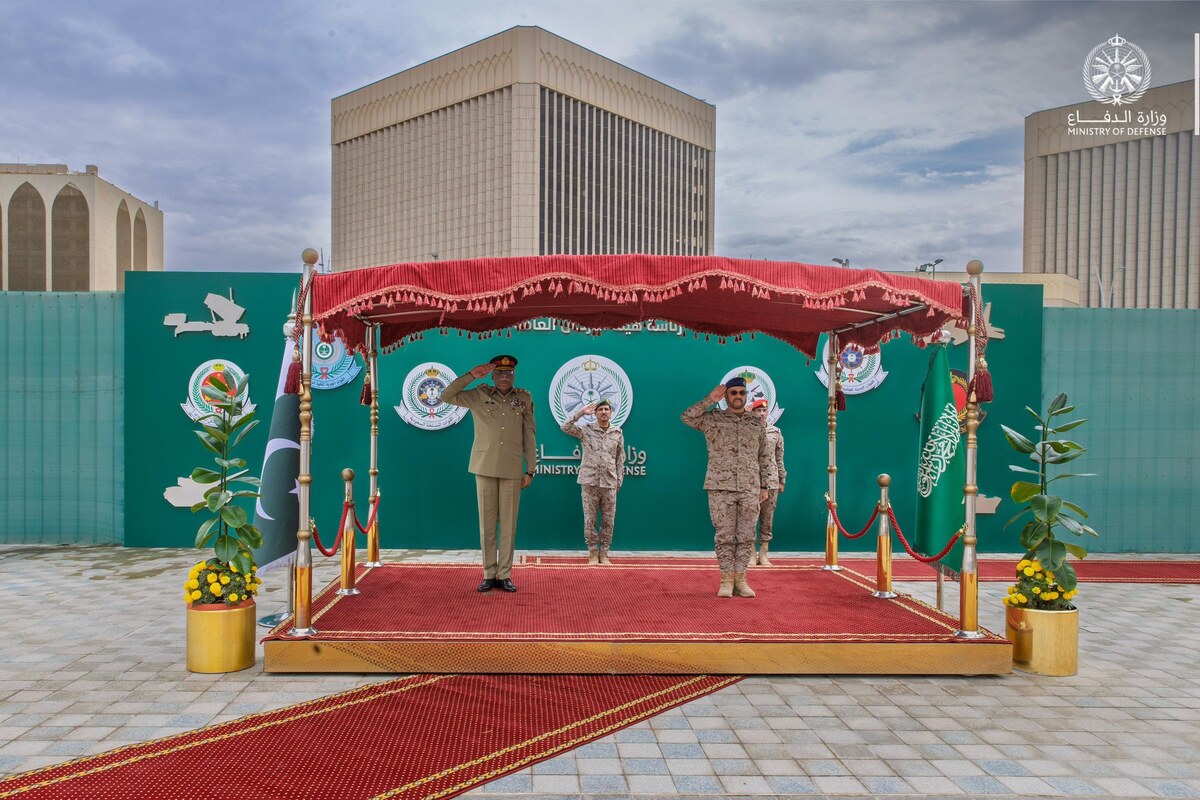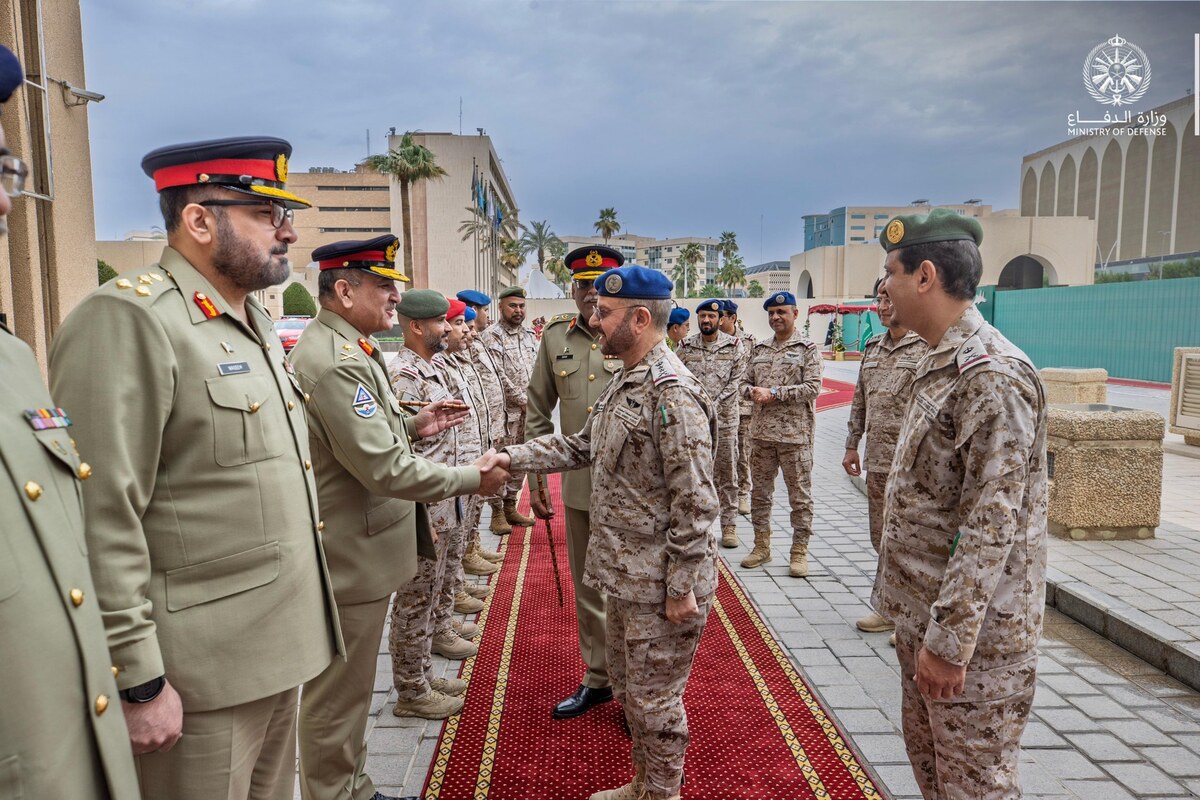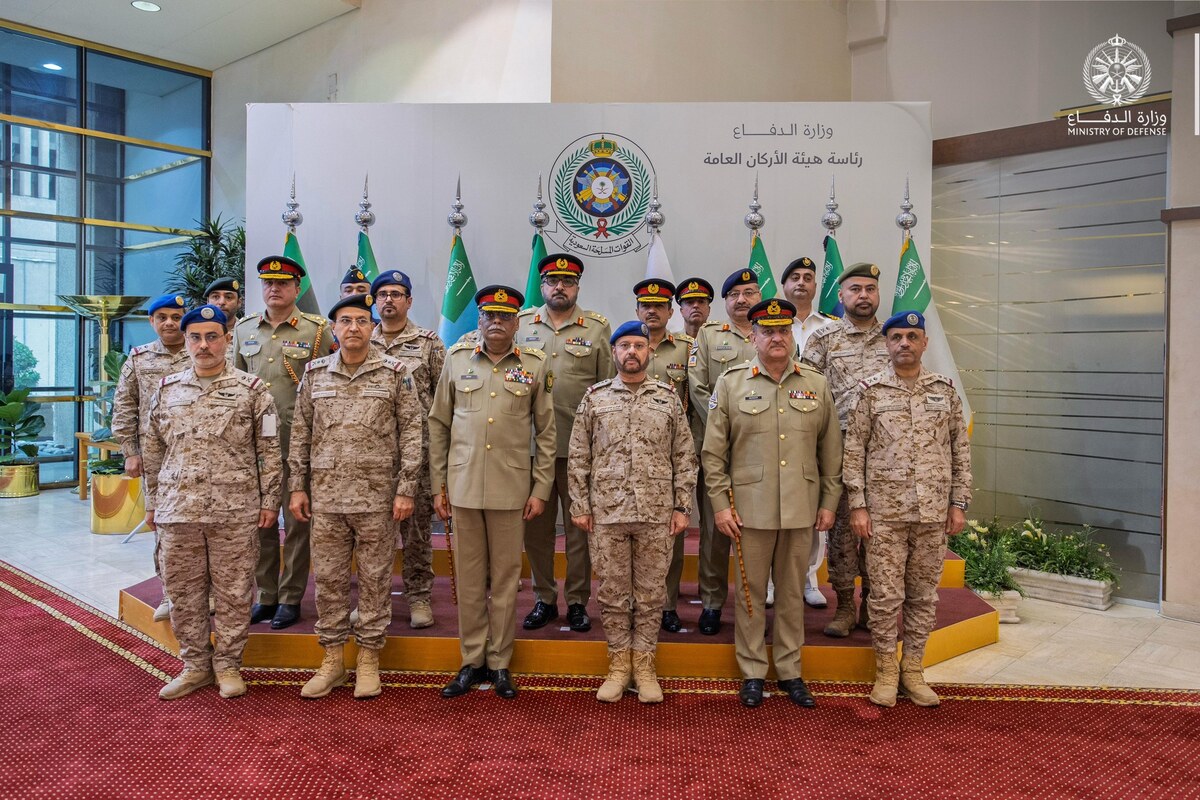LAHORE: As the sun dips below the horizon, signaling the end of the day’s fast, the Badshahi Mosque in Lahore begins to stir with renewed vitality, attracting people to the historic site of worship for special Ramadan night prayers.
Most of these people are residents of different neighborhoods of the city, but a significant chunk of them also travels from nearby towns and settlements, all drawn by the profound spiritual gravity of the last ten days of the Muslim fasting month.
These days have unparalleled significance since they contain Laylat Al-Qadr, the Night of Power, when the first verses of the Holy Qur’an were revealed to the Prophet Muhammad (PBUH). The air is charged with devotion, as the faithful seek to immerse themselves in prayer and reflection to maximize their spiritual experience.
Among the sea of believers is Irfan Hussain, who has traveled all the way from London. For him, this pilgrimage is an inward journey and a chance to experience the collective fervor of the special Taraweeh prayers in the mosque’s expansive courtyard, under the expanse of the night sky.
“To be honest, I’ve always dreamed to come to the Badshahi Mosque,” he told Arab News. “I’ve been to many mosques across the world but this Masjid is truly beautiful.”
What made his experience even more exhilarating is Jumu‘ah-tul-Wida‘a, the last Friday of Ramadan, which is considered sacred since it marks the biggest congregational prayer of the month before Eid Al-Fitr.
“Praying outdoors especially is amazing,” he continued. “In the UK, [and other] parts of the world, [we] don’t get a chance to pray outdoors.”
Hussain’s presence at the mosque, amid the throng of worshippers, reflects the timeless allure of the Badshahi Mosque, a place where history and holiness converge, offering a sanctuary for those seeking spiritual renewal in the sacred nights of Ramadan.
Constructed in the 17th century under the reign of Emperor Aurangzeb, the mosque offers a glimpse into the magnificence of Mughal architecture. Its red color enhances the grandeur of the large central dome, which is framed by grand minarets at each of the building’s four corners. Worshippers entering the main hall also marvel at the intricate marble work.
Unlike other mosques in much of the rest of the country, women also play a significant role in the communal life here, with dedicated areas for them to perform the Taraweeh and Friday prayers.
“[We want to ensure] that women can offer communal prayers as they’re meant to during special occasions like Ramadan, instead of just praying at home,” Bashir Azad, a mosque administrator, told Arab News.
The iftar offerings at the mosque, free and sizeable, start with the traditional dates, following Islamic custom. This also attracts many people, who had come for the Friday prayers, to stay through iftar, followed by the Isha and Taraweeh prayers.
Azad said the mosque’s ability to provide respite from the sun, combined with its historical significance in Old Lahore, created one of the finest communal prayer experiences.
“We offer one of the best experiences of communal prayers, so I think this all ties in together,” he continued. “People come early and they don’t want to leave till late.”
Dozens of people in the mosque are also practicing spiritual seclusion, known as i‘tikaf, observed during the last ten days of Ramadan, where Muslims dedicate themselves to prayer and Qur’anic reflection.
Dr. Mustafa Kamal, a radio presenter, is one of them.
“Yes, I’ve been coming here [in Ramadan] for a number of years now,” he said. “It’s difficult to say why I choose this mosque. There’s a sense of peace and calm here. I think my mind [stays] at ease here.”
Unlike such regulars, many people, like a woman named Shumaila, said they were offering Taraweeh prayers at the Badshahi Mosque for the first time.
“This is the first time I’ve been here for Taraweeh prayers. My son brought me here. The atmosphere here is great,” she said, attributing the tranquility of the place to the separate praying enclave for women.
Another woman, Hafsa, said she had come to the mosque with her sister and father on Jumu‘ah-tul-Wida‘a, even as their own home was situated in a different corner of the city in Raiwind.
“We come to the Badshahi Mosque very often,” she told Arab News. “Every Eid prayer and especially to say Taraweeh prayers during Ramadan.”
Asked why so many people within the city preferred to commute for an hour to come to this mosque, she said: “Because it’s a historical place [built] around 500 years ago by [Mughal Emperor] Aurangzeb Alamgir. So, a lot of people get together so they can perform Taraweeh in one of Allah’s grandest houses on earth.”
Nightly prayers transform historic Badshahi Mosque into Ramadan retreat in Pakistan’s Lahore
https://arab.news/nsq6e
Nightly prayers transform historic Badshahi Mosque into Ramadan retreat in Pakistan’s Lahore

- Built in the 17th century, the mosque hosts thousands of people every week, with a large percentage of them women
- The number of people going to the mosque for worship has even increased further during the last ten days of Ramadan




















